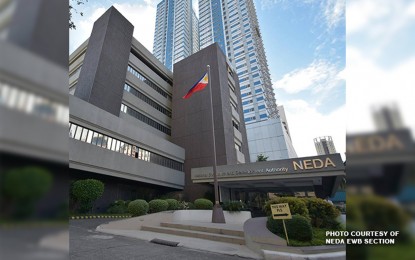
MANILA – The National Economic and Development Authority (NEDA) is pursuing innovation and regional equity in infrastructure to sustain the country’s growth and recovery in 2022 and beyond.
In the #AskNEDA media briefing Tuesday, Socioeconomic Planning Secretary Karl Kendrick Chua said that alongside the economic recovery program, NEDA is continuously preparing for the future.
“I have shared before that my emerging priorities for the remainder of the term are innovation, regional equity, smart infrastructure, and climate change. These priorities are crucial in setting the stage for the next level of our development,” Chua said.
NEDA Undersecretary Rosemarie Edillon and Undersecretary Mercedita Sombilla presented updates on the implementation of the Philippine Innovation Act and NEDA’s analysis on the regional distribution of infrastructure investments, respectively.
Edillon said innovation is critical for economic growth and job creation.
“Innovation is critical for growth and development because it creates new and better products and processes. The Philippine Innovation Act serves as our strategic direction towards strengthening the country’s knowledge-based economic development. Under the Act, we can introduce different types of innovation that play distinct roles at various developmental stages across several sectors,” Edillon said.
Signed in 2019 by President Rodrigo Duterte, the Philippine Innovation Act establishes the National Innovation Council (NIC), which is the government’s main coordinating body for innovation policies.
The council is drafting the National Innovation Agenda and Strategy Document (NIASD) which will outline the country’s 10-year vision and long-term goals to improve innovation governance and raise overall productivity.
Edillon also gave an overview of the Philippine Innovation Toolkit and the AmBisyon e-Village. The toolkit was developed in collaboration with USAID- Science, Technology, Research and Innovation for Development (STRIDE) Program to serve as the core platform for NIASD Co-Creation Workshops.
Meanwhile, the AmBisyon e-Village is an online innovation platform where Filipino innovators can expand their network, exchange knowledge, and adopt new technologies or innovative solutions.
The National Innovation Agenda and the AmBisyon e-Village will be launched on April 21 in time for the annual National Innovation Day.
Sombilla also highlighted opportunities to address existing issues in the distribution of infrastructure investments across the country.
She underscored the need to further improve the equity of distribution among the regions.
Sombilla said the total number of infrastructure projects approved and endorsed by the Regional Development Councils (RDCs) is reduced by almost 50 percent once processed by the National Expenditure Program (NEP) and the General Appropriations Act (GAA).
“One approach to improve equity on investments is to prioritize regions with low scores in social or infrastructure indicators and relatively lower funding in the past years. This requires coordinated planning and programming across various institutions since regional allocation is a more complex problem given the interplay of many factors and challenges,” she added.
Chua said these initiatives aim to provide the next administration with a stronger foundation to address the country’s most pressing problems ahead. (PR)
